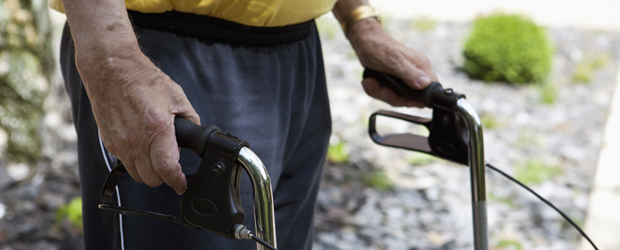Can we fix our attitude to the elderly?
The last year has seen several reports highlight poor care of the elderly. One campaigner tells Channel 4 News the UK is “in denial” about the changes we need to make to cope with our ageing society.
Friday’s report into failings in hospital care of people with dementia is the latest in a long line of damning reports into the way are elderly are treated in the UK.
In November, the Equality and Human Rights Commission brought out a report into home care services of local authorities that said care was so bad it was a breach of human rights. The report spoke to 1,200 older people as well as their friends and family and found examples of people left hungry or unwashed, a disregard for dignity and even episodes of violence by staff.
We live in an ageing society – between 1985 and 2010 the number of people aged 65 and over increased by 20 per cent to 10.3 million. In 2010, 17 per cent of the population were aged 65 and over. By 2035, the number of people aged over 65 will be 23 per cent of the population.
As people live longer they often cost more, needing hospital treatment and now often surviving illnesses that would in the past have killed them, but now leave them with disabilities or needing ongoing support. Increasingly, people also face dementia – 750,000 people in the UK have some form of dementia, the majority of whom are elderly. As today’s dementia audit highlights, that is also a major challenge for the coming years.
I think that as a society we are scared of dying and getting old. Neil Duncan Jordan, National Pensioners Convention
Neil Duncan Jordan is National Officer at Britain’s biggest pensioner group, the National Pensioners Convention (NPC).
He told Channel 4 News that there are philosophical problems with the British attitude to age: “I think that as a society we are scared of dying and getting old and this hangs around everything to do with older people – bus passes, pensions, care, housing – nobody wants to tackle it because they are frightened of what it really means.
“We have an instinctive unease about getting old and to be honest it’s not surprising. We have one of the worst state pensions in Europe and endless horror stories about care. Who would want to get old?”
Earlier this year the economist Andrew Dilnot brought out a review into the future of social care and proposed a number of reforms to prevent older people from having to sell their homes to pay for care. Under his plan, individuals would be expected to take our private insurance to cover the first £35,000 of any nursing or care home costs, but those costs would then be capped at £35,000. But the Treasury has expressed concern about finding the extra £1.7bn a year the scheme would require.
The NPC believe that a small amount added onto income tax could fund a National Care Service, but this is not an option the government are considering.

Neil Duncan Jordan said: “They are not interested frankly. But every week there is another report about how poor care is. Social care is now rationed to those who are very extreme, people lower down the chain deteriorate quicker and end up costing more when they come into the system.”
“Of care at home, 80 per cent is provided by private and the voluntary sector. You can earn more on a supermarket checkout than you can performing intimate and personal tasks for someone in their home. It’s not a profession, standards of training are very low, terms and conditions are poor.
“They tell us we have to pay bankers well if we want them to perform well. Well if you want someone to look after your loved one properly, then pay them properly.”
A question of dignity?
Campaigners trying to secure better services for the elderly put much focus on the idea of dignity. Earlier this year, Age UK launched a Dignity in Care Commission with the NHS Confederation and the Local Government Group. It will produce its first report next year.
Ruthe Isden is Age UK’s programme manager for public services. She told Channel 4 News that there are system changes that could bring about change.
“The NHS is set up around curing people, it was developed to fix working age adults, we are now moving to a situation where patients are older people with long term conditions. It’s not set up to do that,” she said.
So, is society failing the elderly on a massive scale? Despite the negative reports of recent weeks and months, Ruth Isden thinks it’s important to be optimistic.
“There is sometimes a tendency to spend a lot of time focusing on professional care, but the vast amount of care is provided by families and communities. We should start by recognising that,” she said.
Neil Duncan Jordan hopes that the UK can tackle enthusiastically the big issues around our changing society.
“There is a huge debate to be had, not just about care issues but about pensions and about working longer or not working longer. I don’t think we have really grasped that as a society.
“We are still in denial.”